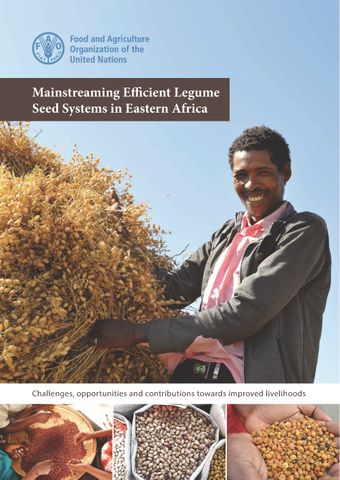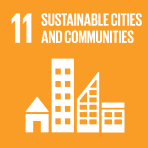Twelve principles in mainstreaming efficient legume seed systems in Eastern Africa

- Authors: Chris Ojiewo, Jean Claude Rubyogo, John Wesonga, Zewdie Bishaw, Mathew Abang and Solomon Gelalcha
- Main Title: Mainstreaming Efficient Legume Seed Systems in Eastern Africa , pp 19-56
- Publication Date: April 2019
- DOI: https://doi.org/10.18356/b244cc0d-en
- Language: English
Developing a sustainable legume seed sector requires a particular approach to analysing the legume seed chain’s critical bottlenecks that hinder technology flow from supply through adoption, to developing support strategies and solutions to the barriers identified as well as clear impact pathways and plans to assessing developmental impact. Seed security assessment (SSA) becomes critical here in order to identify the bottlenecks by collecting and analysing data to allow an understanding of the parameters of seed security, as well as how best to intervene to support seed security (http://www.fao.org/3/a-i5548e.pdf ). One of the factors limiting efficiency in the legume seed sector is the lack of policy support for the input and output markets of legume crops at par with staple cereal crops. In general, legumes have not received sufficient government attention in the past and were called ‘orphan’ crops compared with food security crops, although the situation is changing. Legumes compete for the attention of seed companies against crops that receive stronger policy support. This is besides the already stated facts that legumes are less attractive for private sector investment as it is difficult for seed companies to secure margins from steady seed demand; they do not have strong output markets (especially those linked to a specific variety); and farmers may not have strong incentives to buy legume seed from formal channels on a regular basis.
-
From This Site
/content/books/9789210040891c008dcterms_title,dcterms_subject,pub_keyword-contentType:Journal -contentType:Contributor -contentType:Concept -contentType:Institution105

